Mozambique: Traditional drink still popular 10 years after killing 75
Mozambique: Survey shows almost half of respondents had relatives “murdered” in Cabo Delgado conflict
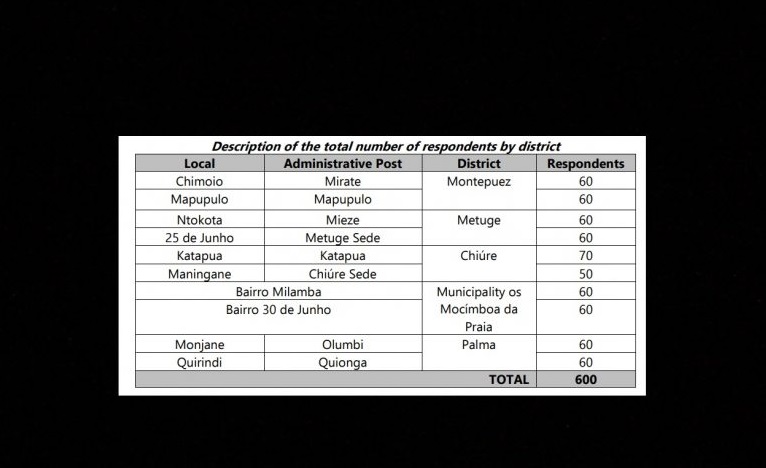
The findings result from the application of 600 questionnaires to families affected by the conflict in the districts of Palma, Mocímboa da Praia, Metuge, Montepuez and Chiúre, throughout the months of April and May 2023. They were complemented by interviews with displaced persons, technicians from non-governmental organizations, public officials and the private sector, as well as extensive field observation. [ Image. OMR]
- The findings in the paper published by the OMR result from the application of 600 questionnaires to families affected by the conflict in the districts of Palma, Mocímboa da Praia, Metuge, Montepuez and Chiúre, throughout the months of April and May 2023, complemented by interviews with displaced persons, technicians from non-governmental organizations, public officials and the private sector, as well as extensive field observation.
Almost half of the 600 families surveyed in five Cabo Delgado districts, northern Mozambique, in a survey by the Observatório do Meio Rural, a Mozambican non-governmental organization (NGO), reported having a family member “murdered” in the violence carried out by armed groups in the province.
In a paper entitled “Humanitarian Organizations in the South and TotalEnergies in the Northeast: Options for Internal Displaced Persons in a Context of a Fragile State”, the Observatório do Meio Rural (OMR) points out that 43% of the households surveyed reported having family members murdered during the conflict.
The findings result from the application of 600 questionnaires to families affected by the conflict in the districts of Palma, Mocímboa da Praia, Metuge, Montepuez and Chiúre, throughout the months of April and May 2023, complemented by interviews with displaced persons, technicians from non-governmental organizations, public officials and the private sector, as well as extensive field observation.
Almost half of respondents (43%) revealed that they had family members “murdered” during the conflict. About a third (34%) of respondents
revealed the existence of at least one family member “abducted”, with 18% revealing the existence of “missing” family members, the OMR paper reads.
The percentage of abductions was particularly evident in the Milamba neighbourhood, in Mocímboa da Praia, and in the village of Monjane, administrative post of Olumbi, Palma district, affecting 60% and 50% of the families surveyed, respectively
The existence of “murdered” and “missing” family members was most evident in Monjane, precisely in the vicinity of Afungi, affecting 57% and 34% of respondents, respectively.
According to reports, many individuals died in the woods, during periods of disorganized escape, victims of murder, illness or exhaustion.
Others drowned while escaping by sea.
“Several villagers claim that an untold number of individuals have perished over the vastness of the territory, noting that “the woods are full of cemeteries.,reads the OMR study.
According to the OMR, the issue is so relevant that, among other suggestions, the document recommends “symbolic recognition of the victims of the conflict, through the construction of memorials”. It also recommends “conducting independent investigations, psychological assistance and compensation to the victims´relatives”.
Respondents attribute responsibility for the atrocities to the rebels, but also to the defence and security forces (FDS), especially in the months that followed the attack on the town of Palma, in March 2021.
“The low salaries of the military, the nonmastery of local languages and the difficulties of communication with the populations, created a
scenario conducive to abuse,” the OMR paper reads.
Many villagers reported episodes of trespassing on property, looting, threats or extortion of monetary values on charges of terrorism, adds the same source.
They also reported episodes of disappearance of individuals at the hands of the military.
The NGO advances that an environment of mistrust persists between communities and members of the FDS, noting, however, a decrease in pressure on the population, compared to what happened between 2020 and 2021.
In early June 2023, three residents of Mocímboa da Praia were murdered by agents of the Rapid Intervention Unit, reads the OMR report .
Following that event, the governor of the province of Cabo Delgado, Valige Tauabo, was requested in an emergency to calm the
tension, but the fact that he was accompanied by FDS agents provoked great popular discontent.
“Eyewitnesses report that many attendees withdrew from the event, with words of dissatisfaction.”, reads the OMR document.
The accusation of the death of three civilians at the hands of the security forces had already been made by the Center for Democracy and Development (CDD), but the Mozambican authorities never commented on the allegation.
The war affected profoundly the social fabric, being responsible for the separation or breakdown of many families. The psychological traumas are evident. Many interviewees are visibly emotional when they talk about family members. Children panic at booms and busts, reads the report.
On the other hand, several interlocutors report insomnia problems, notes the OMR.
Cabo Delgado province has been facing an armed insurgency for five years with some attacks claimed by the extremist group Islamic State.
The insurgency has led to a military response since July 2021 with support from Rwanda and the Southern African Development Community (SADC), liberating districts next to gas projects, but new waves of attacks have emerged in the south of the region and in the neighboring province of Nampula.
The conflict has already made one million people displaced, according to the United Nations, and around 4,000 dead, according to the ACLED conflict registration project.
- To read, download the full OMR paper ‘Humanitarian Organizations in the South and TotalEnergies in the Northeast: Options for Internal Displaced Persons in a Context of a Fragile State’, by Joao Feijo, Jerry Maquenzi and Neuza Balane, in English, please click HERE.


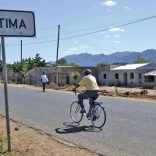


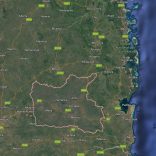
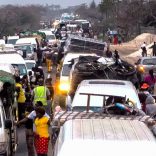
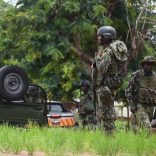



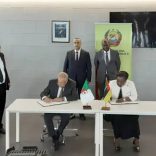

Leave a Reply
Be the First to Comment!
You must be logged in to post a comment.
You must be logged in to post a comment.